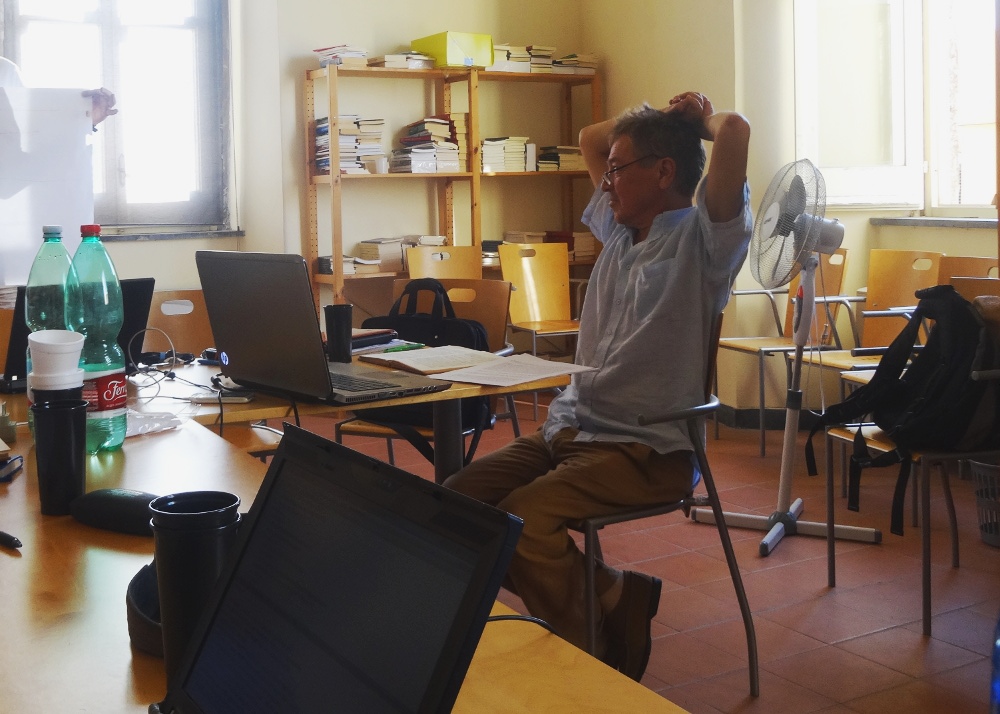CfP: Language as a tools for acquiring Knowledge (Atiner conference)
If you have been following this blog or my previous one you will know that I have been looking for chances for cross-cultural philosophy since many years. You will also know that I have been thinking at the Atiner Conference as a good chance to discuss about Indian themes as part of Philosophy tout court and not within the small ghetto of Indian Philosophy for Indologists.
This year, Malcolm C. Keating (University of Texas, Austin) and I will be hosting a panel at the next Atiner conference in Athens, 25–28 May 2015. If you are interested to join, read the following CfP and drop a line either in the comments or at my personal address. (more…)
The datation of Dharmakīrti is a topic I am not competent enough to speak about, but I will nonetheless try to summarise other people’s arguments.
The departing point is the traditionally accepted date of Dharmakīrti, namely 600–660, settled by Erich Frauwallner mainly on the basis of the reports of Chinese pilgrims,
All nice things come to an end, and so did the IABS conference. Now, many among you will be heading to Heidelberg for the Dharmakīrti Conference. Although I will not be able to attend, I received from K. Yoshimizu his paper for it, with the assent to discuss it here.
The “Pramana across Asia” panel has been opened by Eli Franco, its convener, with the following hope: “In some years, through stimuli such as this panel, we will speak of Indo-Sinic Buddhism, just like we speak of Indo-Tibetan Buddhism”.
Yesterday I missed all talks taking place during my panel, but today I could reconver at least one of them,
Are you allowed to perform a malefic sacrifice? If you are, then it seems like the Veda contradicts itself, since elsewhere it prohibits violence. If you are not, why not, given that such sacrifices are prescribed in the Veda?
Since Mīmāṃsā (both in its Bhāṭṭa and in its Prābhākara subschools) focused primarily on the exegesis of the prescriptive portion of the Vedic Sacred Texts, the Mīmāṃsā texts offer richly developed discussions of deontic issues, both from a linguistic and from a logic point of view. Unfortunately, the lack of philosophically accessible translations has made most of such discussions remain confined to Sanskritists.
There are fields in which the contribution of applied ethics and deontics are more than needed, such as that of the programming of artificial intelligence connected to robots which might interact with human beings. Chaudhuri and Vardi (their article can be downloaded here) quote the following case:

Photo by Birgit Kellner
I met Helmut Krasser during my Erasmus year in Vienna, back in the Nineties. We sat together (meaning that he, Horst Lasic and Ernst Steinkellner prepared and led the meetings whereas I and other people tried to follow and to add minor points from time to time) at the Academy, reading Jinendrabuddhi’s commentary on Dignāga’s Pramāṇasamuccaya.
Yāmuna (967–1038 according to Mesquita 1973) is one of the chief figures of the philosophy later known as Viśiṣṭādvaita Vedānta. In fact, to me one of the most intriguing questions regards his role in the formation of this school. It is only with Rāmānuja (who lived two generations after Yāmuna) that the school becomes clearly Vedāntic and it is not by chance that it is only Rāmānuja who decided to write a commentary on the Brahmasūtra.

